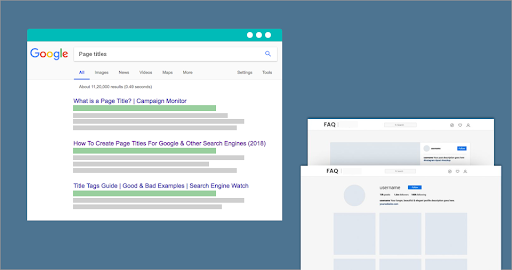Yes, Google does modify Page Title

It is a completely automated process and happens primarily to enhance the relevance of the page/description to the search query. This process involves information from multiple sources like description in the title and the meta-tags for each page. Google also uses publicly available information or results generated based on the mark up of that page.
Read also: Tips to reach Google’s Zero Position
Ideal guidelines to be followed to generate a relevant title:

- Firstly, ensure that every web page on your website has a specified <title> tag. If you are handling a huge website and fear that you may skip few pages, keep in mind to run the HTML suggestions page in search console which will give you a list of pages with missing titles or controversial <title> tags.
- Page titles are expected to be self-explanatory and concise. Ensure to avoid vague phrases and unnecessarily long phrases. Such titles are majorly tweaked when shown on the search results.
- It is important to have keywords in the title but too much of keyword stuffing may not help. It may seem inappropriate to Google and readers both alike.
- The page title should represent the content of the page. It must not mislead the users at any cost. Boilerplate titles like “<brand name>-videos, home” may not add value and will drive traffic away from your webpage. Work on your page title for utmost relevancy with a meta-description to explain the page content. HTML suggestions in search console lists duplicate page titles also.
- Branding of titles is a great approach but too much focus on it may generate repetitive results. Consider including your brand name in the beginning or end separated by a delimiter. For eg. <Brand name>- Sign in here!
- Using robots.txt disallows Google from crawling that page on your website but it may be indexed when found from some other source. In such a case, when Google does not find a valid page title, it will depend on off-page content such as anchor text from other websites to title your page. To completely block your page or URL, you could use “no index” directive.
Read also: About a basic crawling management SEO
The difference between search result title and page title:
If Google finds that one or many of the above mentioned guidelines have not been followed, it tries to improve the quality of title. At times, even well- formulated page titles could be changed. When a user keys in his query, Google tries to throw out the most relevant results in return. If your page title has been changed based on that alternative text, it means Google could meet the user requirement only after changing your page title. This is mutually beneficial for both you and the user as you get more clicks and the user gets the information he needs. All you will have to do is work on the alternative text and evaluate if it does add value and relevance to your content.
To sum up:
It is not only the quality of content on page which is important but also the page title which will need to speak for itself.
Read also: Best SEO Tools for complete website analysis






